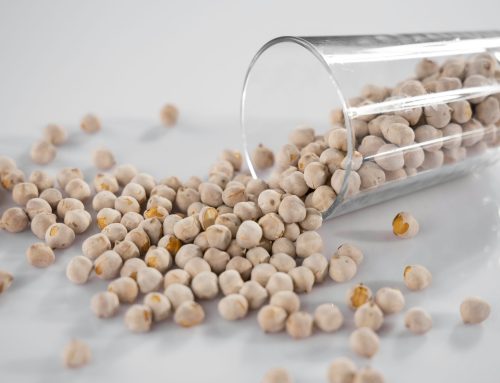Research suggests that CBD is beneficial in treating various medical conditions, including pain, anxiety, epilepsy, acne, and much more. More importantly, it’s helping to improve the quality of life for patients.
So what health issues can be treated with CBD? That’s exactly what we’ll be exploring today.
We’ve got a lot of ground to cover, so let’s dive right in.
Conditions for which CBD Is Being Used
1. Aches and Pains
General body aches, and pains are a common occurrence. These may include the type of soreness you experience after an intense workout session or the stiffness you feel in the cold winter months. Instead of taking a painkiller, you can use CBD.
CBD has anti-inflammatory and soothing properties, making it a great option for pain management. It can be taken orally or applied topically, depending on the level of discomfort you are experiencing.
For example, oral CBD can be included in the morning routine to ensure you stay pain-free all day. Or it can be applied to the painful area topically for localized pain relief.
2. Anxiety
Anxiety disorders are quite common these days. Nearly 264 million people worldwide are afflicted with this condition. It’s more common among teenagers, women, and white Americans.
CBD allows the mind to relax and helps increase calm. So it’s an effective treatment for anxiety and other related conditions, such as phobias, PTSD (post-traumatic stress disorder), OCD (obsessive compulsive disorder), panic disorder, etc.
In fact, a review of 49 studies published in 2015 suggests CBD may help curb anxiety-related disorders.
3. Depression
Nearly one in four people encounter mental health problems sometime during their lives. So it’s not surprising that issues such as depression rank in the top 20 causes of DALYs (disability adjusted life years).
Recent studies show that CBD helps reduce symptoms of depression, anxiety, and stress by altering the levels of serotonin in your brain. Since serotonin is responsible for regulating your emotions, stress, and mood, it can effectively help treat the symptoms of depression.
4. Epilepsy and Neuropsychiatric Disorders
According to an analysis published in the New England Journal of Medicine, CBD successfully helped reduce the number of seizures in patients with epilepsy. In 2018, FDA approved the use of oral CBD to treat some types of epilepsy.
5. Sleep Disorders
CBD helps ease anxiety and pain, allowing people to relax and fall asleep quicker and continue to sleep more soundly. But besides this, CBD can help patients suffering from sleep disorders, such as insomnia and restless leg syndrome (RLS).
Insomnia results from the brain overreacting to stress that prevents the mind from resting. CBD reduces stress and anxiety levels, allowing the brain to relax when it’s time to go to bed.
With RLS, people have an uncontrollable urge to keep moving their legs, and the muscles continue to twitch. This can ruin the quality of sleep. CBD helps the muscles relax and reduces pain, diminishing the symptoms of RLS.
6. Skin Conditions
CBD can help alleviate several skin ailments, such as acne, eczema, dermatitis, psoriasis, etc. This is not surprising since CBD has antibacterial and antiviral properties which help fight infections. So when applied topically, it can help reduce infection, inflammation, pain, itchiness, and redness.
What’s more, CBD also contains vitamin E, an essential ingredient in skin care routines. It helps keep the skin moisturized, softer, and healthier, preventing wrinkles and dryness.
7. Cancer
Cancer affects millions of people worldwide. At the moment, CBD has great potential as a drug for cancer therapy in two ways. First, research shows that CBD can kill cancer cells. However, this is all in the initial stages. More studies are required before the drug can be introduced into therapies.
Secondly, besides helping treat cancer, CBD can also soothe the symptoms of the disease (pain, inflammation, anxiety, etc.) and the side effects of traditional cancer treatments (discomfort, nausea, vomiting, etc.). More importantly, it helps improve the quality of life of pateints as they battle the disease.
8. Chronic Pain
Chronic pain is persistent pain that lasts more than 12 weeks even after taking medicine and receiving medical treatment. Chronic pain can be the result of an injury that the person has recovered from or due to an ongoing medical condition, such as cancer or arthritis. Either way, it is an unpleasant condition that often leaves the patient grappling to complete daily chores, taking a toll on their confidence and mental well-being.
CBD can provide considerable relief from pain and swelling, helping to manage the condition. Patients can apply CBD products topically to the sore, tender areas as frequently as needed. In fact, it’s better than taking other analgesic alternatives orally as they can have various side effects which create havoc on your internal organs.
9. High Blood Pressure
Research suggests that CBD can help lower blood pressure due to several reasons. As we mentioned above, CBD effectively reduces anxiety and pain, both factors that can raise blood pressure.
But scientists further claim that CBD can also lower blood pressure by binding to the receptors in the arteries, causing them to relax.
10. Type 2 Diabetes
Diabetes is one of the leading causes of death, so naturally, there is a lot of attention on how to treat this disease. With the hype of CBD as a miracle drug, researchers are continuing to explore the benefits of the drug in managing type 2 diabetes.
At the moment, there is some evidence that CBD is helping to stabilize blood sugar levels. Since CBD helps manage pain, this reduces the stress response, lowering cortisol and blood sugar.
Some Key Aspects to Keep in Mind
While there are numerous studies indicating that CBD may help alleviate the symptoms of many health issues, you need to keep the following points in mind:
- The results can vary from person to person depending on the type of CBD used and the dose. Individuals need to find the method and dosage that works best for them. For instance, some people may find relief using a lighter formula while others may require something stronger, like a 2500 mg CBD cream applied several times a day.
- Most of these studies have been conducted on small sample sizes or on animals. So the results do not necessarily represent the drug’s effect on the general population.
- Even though initial results are positive, additional research is required to monitor the long-term effects of CBD use on the condition.
Over to You
CBD is gaining momentum in treating countless health issues. However, even though initial results are very promising, more research is required to understand what CBD form can be used for certain medical issues and the correct dose to prevent undesirable side effects.








Leave A Comment